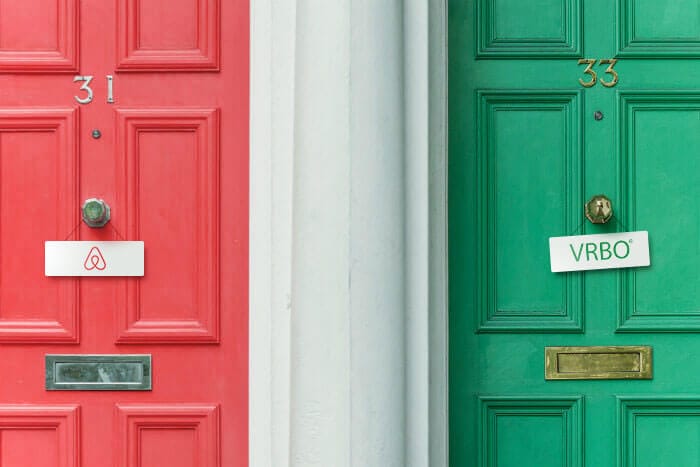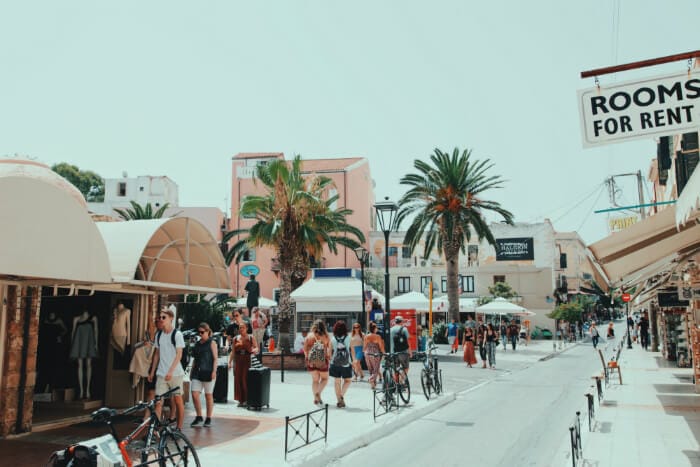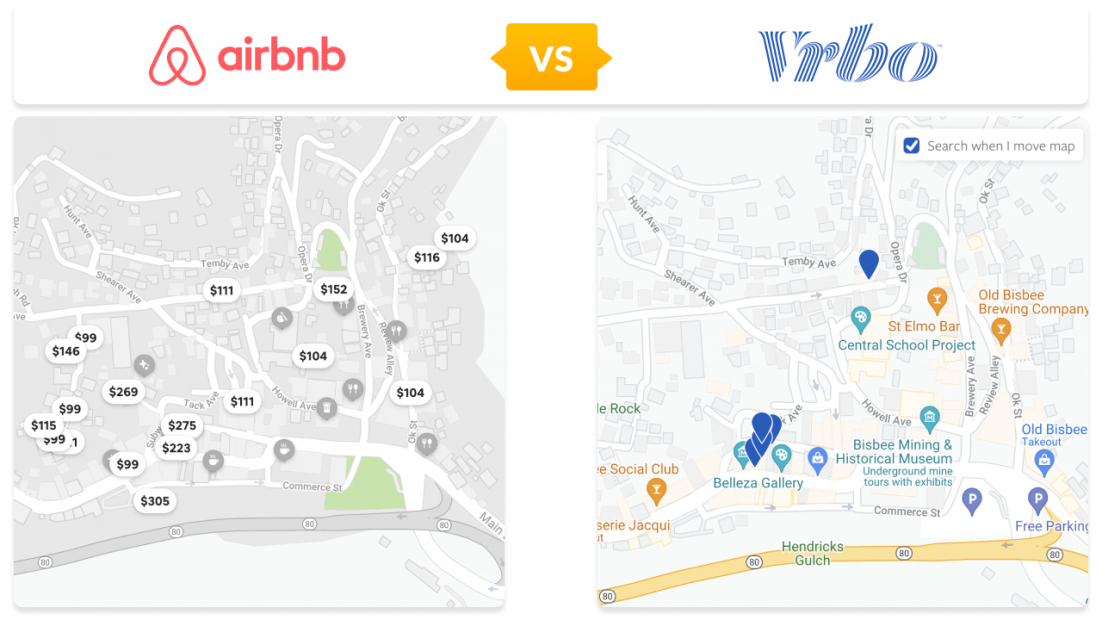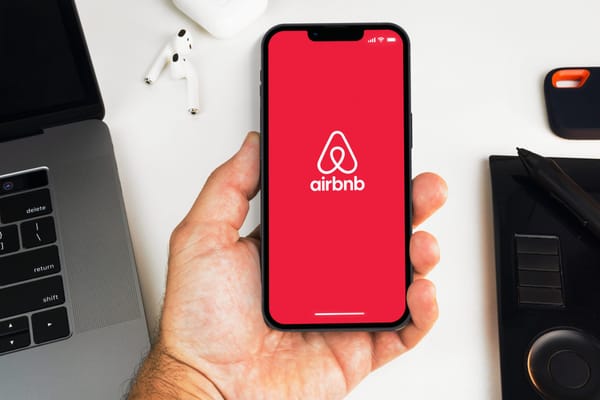Airbnb vs Vrbo: Which is Best for Hosts and Travelers?

Airbnb and Vrbo are two vacation rental services that have gained vast popularity among travelers and property owners. However, when considering where to list your property, you might wonder which of these two options will yield better results for your short-term rental business. As a guest, you might be curious to know which of these platforms is able to cater to your unique needs and help arrange your dream vacation.
To help you decide, we’ve compared Airbnb and Vrbo and researched their key features, differences, pros, and cons. Read on for an in-depth look at, which of these two sites would be a smarter choice for your business or for your next vacation.
Airbnb vs Vrbo General Facts and Figures
At first glance, Airbnb and Vrbo have a lot in common. While both were designed as an alternative to accommodation like hotel rooms, there are a couple of subtle differences that a vacation rental owner will need to keep in mind.
Airbnb was founded in 2008 and, as of January 2025, boast more than 7.7 million active listings in more than 220 countries. Vrbo (originally known as Vacation Rental by Owner) was founded in 1995 and now is owned by the Expedia Group. According to their website, there are over 2 million property listings in 190 countries.
Airbnb might be a lot newer than Vrbo, but it has quickly stood out as a rental platform that offers more unique experiences for guests compared to Vrbo and other vacation rental sites. For example, unlike Vrbo, Airbnb also offers shared spaces.

While Airbnb boasts more listings and provides services in a higher number of countries, listing a property on Vrbo can give hosts further exposure.
Regardless of which rental platform you choose, or whether you decide to list on both Airbnb and Vrbo, it’s important to ensure flawless vacation rental management and effective communication.
iGMS, the vacation rental software for professional hosts and Airbnb’s Preferred Partner, can help you manage reservations on Airbnb and Vrbo, and other leading short-term rental platforms like Booking.com, via one streamlined interface. It offers hosts and property managers ample tools like a robust multi-calendar, a unified inbox, automated triggered messaging, and a lot more to help you manage multiple listings smoothly, saving you valuable time along the way.
Airbnb vs. Vrbo: Vacation Rental Types
Prominent differences between Airbnb and Vrbo are made clear in the property types that can be listed on each platform.
Airbnb Vacation Rentals
Airbnb hosts and property managers are allowed list various types of properties for private rentals, starting from private rooms to cabins and tiny houses to luxury rentals and beachfront cottages.
This usually means that travelers looking for more unique and specific property types can find them easily on Airbnb. In addition, Airbnb allows hosts to list shared spaces. This means that travelers can book single rooms within a home instead of paying for an entire property.
Vrbo Vacation Rentals
On the other hand, Vrbo offers more traditional accommodation. As Vrbo is more about family stays, it only accepts bookings for standalone vacation homes and doesn’t allow advertising shared spaces of any kind.
Because of this, Vrbo properties tend to be more attractive for larger families who are traveling together and are looking to rent an entire home.
Although both Vrbo and Airbnb provide short-term rental accommodations, Vrbo properties are more suited for longer stays. Airbnb is a great option for those taking shorter trips, but, that said, this platform introduced monthly stays and now offers discounted prices for longer stays.
Unlike other market OTAs like Booking.com, neither Airbnb nor Vrbo offer accommodations like hotel rooms and large-scale hotel resorts.
Airbnb vs Vrbo: Service Fees

No matter where you decide to list your property, there are service fees to be paid by both hosts and guests. Service fees can affect your overall short-term rental revenue and the final price a guest will pay for a reservation. Here’s a quick breakdown:
Airbnb Service Fees
Airbnb offers two different service fee options: The split fee and the host-only fee.
The split fee, as the name suggests, splits the service fee between the guest and the host. Under this model, guests typically will absorb the bulk of the fees, usually paying about 14% of the booking subtotal as an additional fee. In this case, hosts end up paying around 3% of the total booking cost, but this could amount to more for hosts who opt for strict cancellation policies.
With the host-only fee, hosts pay the entire service fee to Airbnb, sparing those who book with them from having to cover a guest service fee. Usually, this amounts to between 14-16% of the total booking cost. Airbnb hosts are not charged a separate credit card processing fee.
The host-only fee is mandatory for hotels. It is also mandatory for software-connected hosts unless most of those hosts’ listings are located in the United States, Canada, the Bahamas, Mexico, Argentina, Taiwan, or Uruguay.
Airbnb Plus hosts and hosts who select Super Strict cancellation policies may pay higher fees.
If you opt to offer an Airbnb Experience, you can expect to pay even more. Each Airbnb property owner who offers Airbnb Experiences is charged a 20% service fee.
Pro Tip: The benefit of the host-only fee is that guests are not blindsided by the additional service fees which are only applied at checkout. To be able to cover the host-only fee, hosts always have the option to bump up their property pricing slightly. This way, guests are already aware of the full price and are willing to pay it without feeling scammed.
Vrbo Service Fees
Travelers pay between 6% to 12% as a guest service fee of the total reservation cost when making a booking.
Vrbo Hosts can choose between two service fee models, based on their estimated annual income. They may opt for a $499 annual subscription fee that covers all the bookings they get on the platform throughout the year.
The other option is to pay a booking fee for each individual booking. In this case, hosts are charged a 5% commission on the rental amount and any extra Vrbo fees (like a cleaning fee) plus a 3% credit card processing fee.
If a host can ensure that he/she will exceed the minimum number of bookings to cover the costs, the annual subscription may help save on hosting fees. So, if you are a full-time, all-year-round host whose income is higher than $10,000, a subscription model will make more sense.
Does Vrbo Charge More Than Airbnb?
Looking from the hosts' perspective, both platforms offer different fee structures. However, Airbnb does have the lowest split service fee where hosts pay only 3% of the subtotal.
Nonetheless, Vrbo's annual subscription option ($499) could be more economical for high-volume hosts. For a host earning over $10,000 annually, this flat fee would represent less than 5% of their income. Let's assume you have an upscale property for families and groups, so you could rent it out at a higher price, then you can hit this target easily.
Vrbo vs Airbnb: Cancelation Policy
Both Airbnb and Vrbo have cancellation policies that protect hosts from unexpected cancellations while offering guests refunds for timely notifications.

Airbnb Cancelation Policy
Airbnb offers three main types of cancelation policies: Flexible, Moderate, Firm and Strict. There are also other additional policies: Super Strict (30 days), Super Strict (60 days). The Flexible policy is definitely a favorite option among guests. According to this policy, a guest can cancel a booking 24 hours before check-in and receive a full refund.
Guests tend to choose listings with the ‘Flexible’ policy more often because they know they will be able to cancel a reservation and receive a refund if they really have to. This is why opting for the Flexible cancelation policy usually leads to a higher number of bookings and bumps up your occupancy rate. The downside of this policy might be a possible loss of profit if a host fails to find a replacement guest.
Vrbo Cancelation Policy
Vrbo offers five types of cancelation policies that hosts can set for their listings: Relaxed, Moderate, Firm, Strict, and No Refund. Some of these options allow for a refund for guests, while others do not. Vrbo’s relaxed policy allows guests to cancel a reservation no later than 14 days before check-in to receive a full refund.
With regard to the no refund policy, guests are not eligible for a refund under any circumstances or timeframe.
Vrbo also offers a safeguard to reduce unnecessary cancellations. Depending on a host’s reason for canceling, you might qualify for a Vbro cancellation waiver. It’s important to note that if you don’t receive a waiver, your ranking metrics will be negatively affected by your cancellation.
Vrbo vs Airbnb: Audience

Airbnb typically attracts almost double the amount of traffic that Vrbo does each month, giving it the upper hand. Airbnb easily takes the crown for the widest selection of properties available to travelers, boasting 7.7 million listings — more than triple that of Vrbo’s 2 million.
To illustrate the difference, here is an example comparing the selection offered on each platform in the same location:

In addition to the overall website traffic, you should also factor in the type of audience a website attracts:
Airbnb Guest Profile
Airbnb attracts people of a younger age who are in search of more affordable accomodation. It also lures adventurers who are craving a trip with new experiences as opposed to the typical hotel stay.
Airbnb tends to attract people who would like to rent a property for a shorter term at an affordable price in city destinations. It also caters to business travelers who are looking for convenient accommodations.
Vrbo Guest Profile
Vrbo rentals are famous for family vacations and older audiences who are willing to pay for an almost entire apartment or house. If your property is kid-friendly and can accommodate a large family or group, then setting a listing on Vrbo will be a smart move for your business.
Vrbo vs Airbnb: Making Reservations
Both sites offer similar booking features, including an instant booking feature. This makes the reservation booking process infinitely more convenient for guests. It eliminates the need to send a booking request and wait for approval from the owner.
Vrbo vs Airbnb: Quality of Customer Service
Both booking sites have the challenge of catering to the needs of hosts as well as guests.
Airbnb Customer Service
To improve customer service, Airbnb introduced a Resolution Center that hosts can use to request money or guests can use to request a refund. If guests and hosts can’t reach an agreement, they have the option to ask Airbnb for mediation. A dedicated team member will then assess the information shared by both parties and reach a final decision.
Vrbo Customer Service
Vrbo’s quality of customer service has attracted a very few complaints among hosts. The fact that the fewer rentals on their site might play a contributing factor. Hosts or guests who need help can contact Vrbo Customer Support. It is available 24/7 via telephone or online chat.

Vrbo vs. Airbnb: Reviews
While reviews matter on both platforms, when it comes to the Airbnb vs. Vrbo comparison, there are some key differences to note.
Airbnb facilitates the review culture and encourages guests to leave reviews after their stay. A guest and a host have 14 days to write a review. Airbnb reviews system is based on a five-star rating and prompts guests to rate the accuracy of the listing description, cleanliness, communication, location, check-in, and value for money.
On Vrbo, a guest or a host has up to one year from the date of a stay to leave a review. However, once a review has been submitted by one of the parties, the other party has 14 days to share their review in return.

Vrbo vs. Airbnb: Special Features
Let's look at what is unique and special about both platforms.
On Airbnb, in addition to short-term rentals, guests can book unique experiences in some of the world’s most beautiful cities and most popular tourist destinations using Airbnb Experiences.
Airbnb Experiences include one-of-a-kind activities specific to a destination that guests may enjoy. For example, guests can book a cooking masterclass with a local host or go on an adventure with a local guide to discover hidden wonders and places of that specific destination. This makes for a completely unique and immersive experience for travelers.
Vrbo’s competitive edge lies in some of the extra functionality on its site. They offer a Trip Board feature, which helps travelers organize their favorite destinations and properties while they are planning their trips. Guests are even able to invite friends and family to collaborate on the boards and search for properties with them if they are planning a trip together.

Key Airbnb and Vrbo Differences
Airbnb
- Offers a wide selection of properties to guests, and features unusual and pricey options as well as affordable single rooms and shared apartments.
- The host fee is one of the lowest in comparison to other short-term rental sites.
- In addition to rentals, Airbnb also offers Airbnb Experiences.
- Well-suited for city travelers and people who are looking for adventures.
Vrbo
- Offers a smaller number of listings which means less variety of choices for guests but has a bigger choice of upscale accommodation options.
- Only private, entire-place accommodations are available.
- Caters to families and large groups.
- Offers two fee models for hosts to choose from.
What is the Downside of Doing Airbnb?
- More competition of rental homes in many markets.
- Sometimes you need to put more effort in to stand out among numerous listings.
- Airbnb is sometimes accused by the host community of siding with guests (although they insist on catering to both parties).
- Risk of problematic guests due to sometimes lower barriers to booking.
What is the Downside of Doing Vrbo?
- Smaller user base compared to Airbnb.
- Not for renting shared spaces.
- More focus on family/group travel.
- Less name recognition in some markets
- Less flexibility for urban/apartment rentals (more focused on vacation homes).
What Is the Best Vacation Rental Company to Use as a Host?

For hosts, it is now clear to see that your choice of short-term rental platform will be based on the target guest you have in mind and the type of property you offer.
If you are lucky to be able to rent out an entire place, we recommend you enhance your reach by advertising your property on both platforms. This boosts your property’s occupancy rate and will help to maximize your revenue.
Once you start harnessing the advantages of both sites, go one step further, and optimize the process of handling your properties on multiple platforms by using the powerful tools provided by iGMS.
By automating your routine tasks, you will be able to focus more on other vital aspects of your business and set it up for long-term success.






